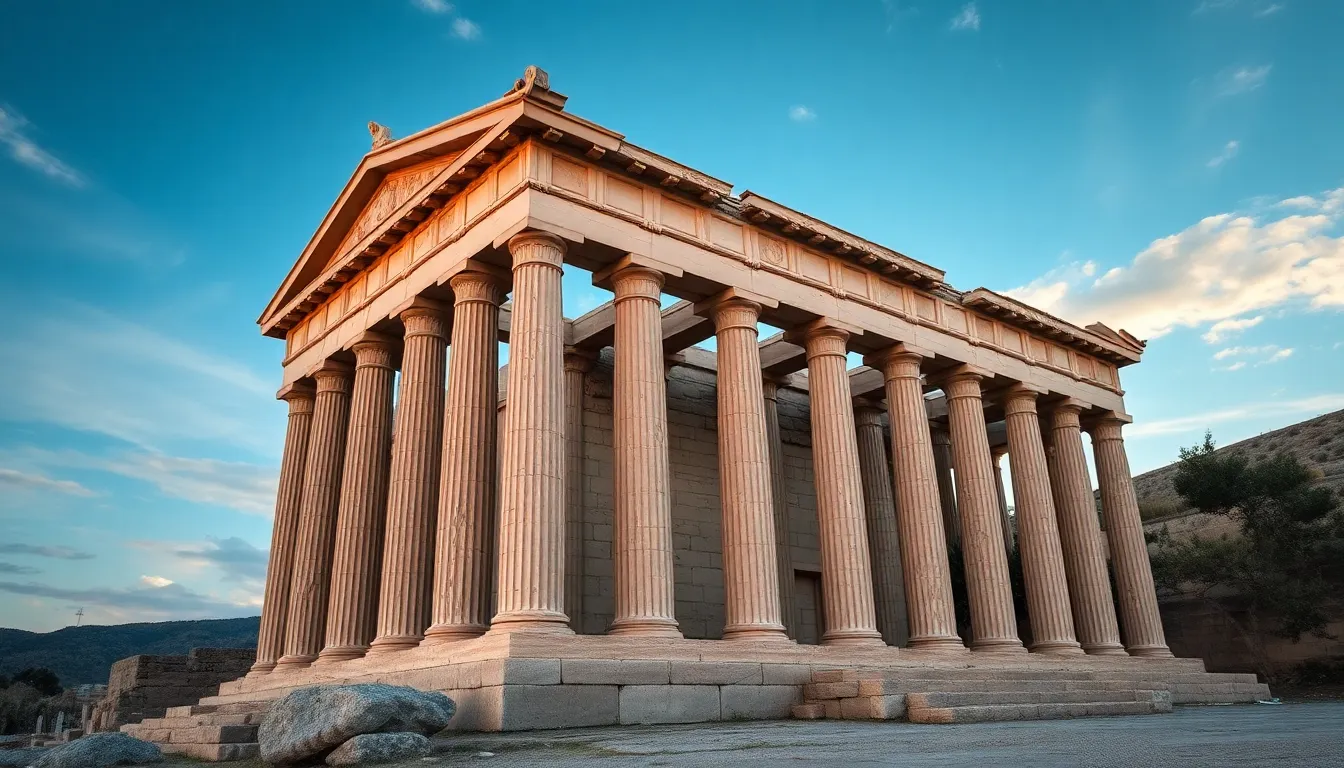The Importance of Myths in Preserving Greek Cultural Identity
I. Introduction
Myths are traditional stories that serve to explain natural or social phenomena, embody cultural values, and provide insight into the human condition. They play a crucial role in shaping cultural and national identities, serving as vessels for collective memory and shared beliefs.
Greek mythology, in particular, is a rich tapestry of narratives that have played a significant role in the history and culture of Greece. These myths not only entertain but also reflect the values, beliefs, and practices of ancient Greek society.
This article aims to explore the importance of Greek myths in preserving the cultural identity of Greece, examining their historical context, reflection of values, influence on literature and arts, role in national identity, contemporary preservation efforts, and their global impact.
II. Historical Context of Greek Myths
The origins of Greek mythology can be traced back to ancient Greece, where stories were passed down through generations. These narratives were deeply intertwined with the daily lives and beliefs of the people.
Oral tradition played a vital role in the transmission of these myths. Poets and storytellers would recite tales of gods, heroes, and mythical creatures, keeping the stories alive in the collective consciousness.
Greek myths significantly influenced ancient society, providing moral lessons, justifying political power, and explaining natural phenomena. They shaped cultural practices and norms, creating a shared identity among the Greek people.
III. Myths as a Reflection of Greek Values and Beliefs
Greek myths are rich in themes that resonate with the values and beliefs of ancient Greek society. Some prominent themes include:
- Heroism: The stories of heroes like Heracles and Achilles exemplify courage and strength.
- Morality: Myths often convey moral lessons, highlighting the consequences of hubris and the importance of virtue.
- Fate and Free Will: Many myths explore the tension between fate and individual choice, reflecting the Greek belief in destiny.
These themes encapsulate the cultural values of honor, loyalty, and the quest for knowledge. Furthermore, myths were closely linked to Greek religious practices, with deities representing various aspects of life and nature, and rituals aimed at appeasing these gods.
IV. Myths in Greek Literature and Arts
The influence of Greek mythology is evident in classical literature, with authors like Homer and Hesiod drawing heavily from mythological themes. Homer’s epics, such as the “Iliad” and the “Odyssey,” weave together myth and history, exploring the human experience through the lens of divine intervention.
In visual arts, Greek mythology found expression in sculpture and pottery. Artists depicted scenes from myths, showcasing gods, heroes, and mythical creatures, allowing these stories to transcend the spoken word.
Moreover, Greek myths have been adapted in modern literature and film, demonstrating their timeless appeal. Works like Madeline Miller’s “Circe” and films like “Clash of the Titans” reinterpret these ancient stories for contemporary audiences, keeping the mythological tradition alive.
V. Myths and National Identity
Greek myths play a pivotal role in shaping the national consciousness of Greece. They serve as symbols of cultural heritage and unity, connecting Greeks to their ancient past.
Throughout history, myths have been used as symbols of resistance and resilience, particularly during times of foreign occupation and political turmoil. The stories of heroes and divine intervention inspired generations to fight for their freedom and identity.
Furthermore, myths foster a sense of belonging among Greeks, reinforcing cultural pride and continuity. They remind people of their shared heritage and the values that have shaped their nation.
VI. Preservation of Myths in Contemporary Greece
Efforts to keep Greek myths alive are evident in various educational and cultural programs. Schools incorporate mythology into their curricula, teaching students about their rich heritage.
Festivals, performances, and traditional practices play a crucial role in the preservation of myths. Events like the Athens Festival celebrate ancient dramas, while local festivals often include mythological themes, engaging communities in their cultural narratives.
However, challenges exist in maintaining this mythological heritage in an increasingly globalized world. The rise of digital media and changing cultural dynamics pose risks to the traditional narratives, necessitating proactive preservation efforts.
VII. The Global Influence of Greek Myths
Greek mythology has left an indelible mark on Western literature and culture. Many literary works, philosophical ideas, and artistic expressions draw inspiration from these ancient stories, demonstrating their universal themes and relevance.
Cross-cultural adaptations and reinterpretations of Greek myths abound in various forms, from Shakespeare’s references to Greek tragedies to modern retellings in different cultural contexts.
In contemporary global discussions, Greek myths continue to be relevant as they address timeless human experiences and ethical dilemmas, reminding us of our shared humanity.
VIII. Conclusion
In conclusion, Greek myths are not merely ancient stories; they are vital components of Greek cultural identity. They preserve historical narratives, reflect societal values, and reinforce national consciousness.
The ongoing relevance of these myths in today’s society underscores their significance as cultural touchstones. As we navigate a rapidly changing world, it is essential to appreciate and preserve Greek mythological heritage for future generations.
In light of this, we encourage all to explore, celebrate, and safeguard the rich tapestry of Greek myths, ensuring that these timeless narratives continue to resonate across cultures and generations.




